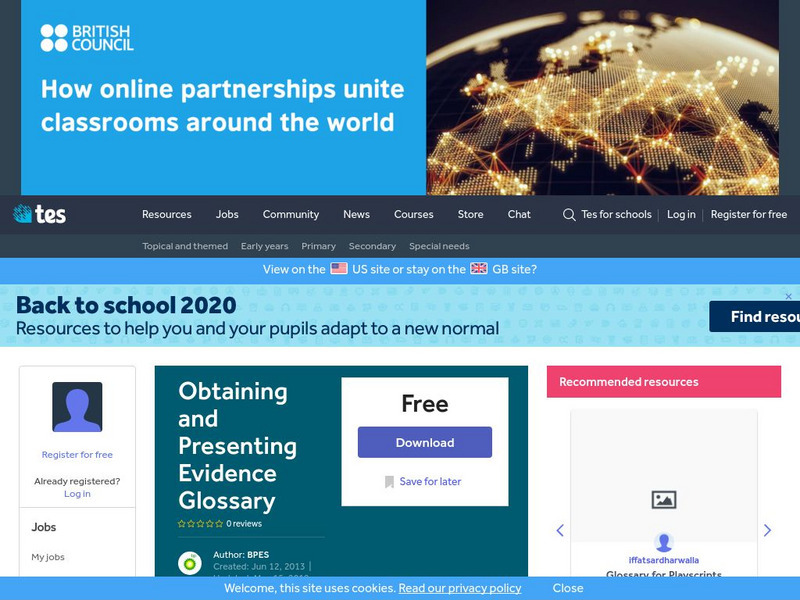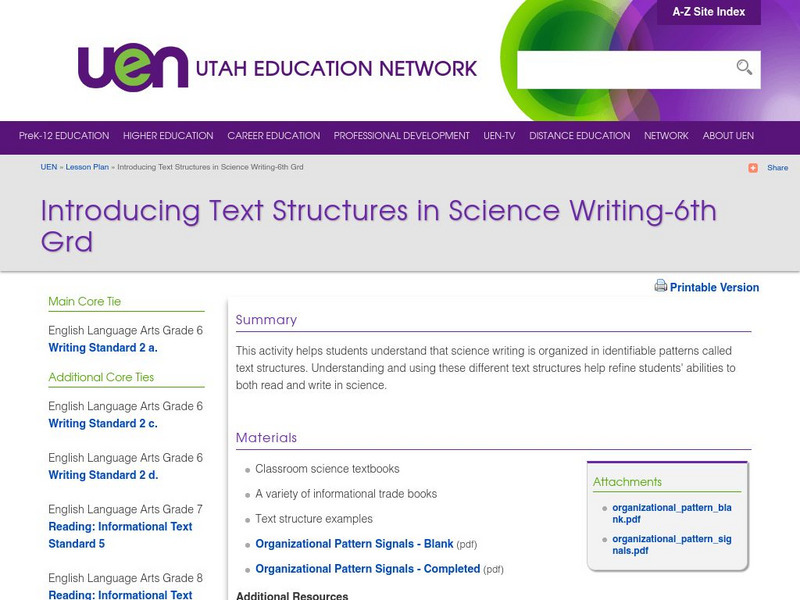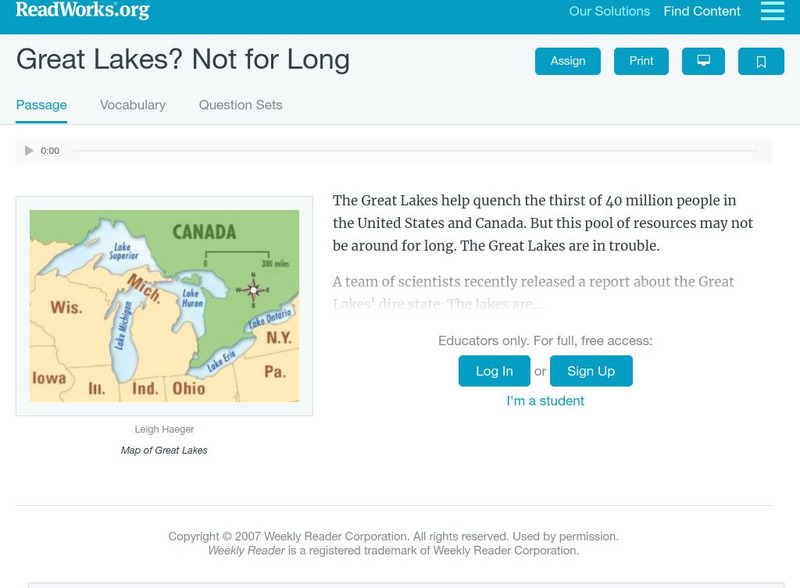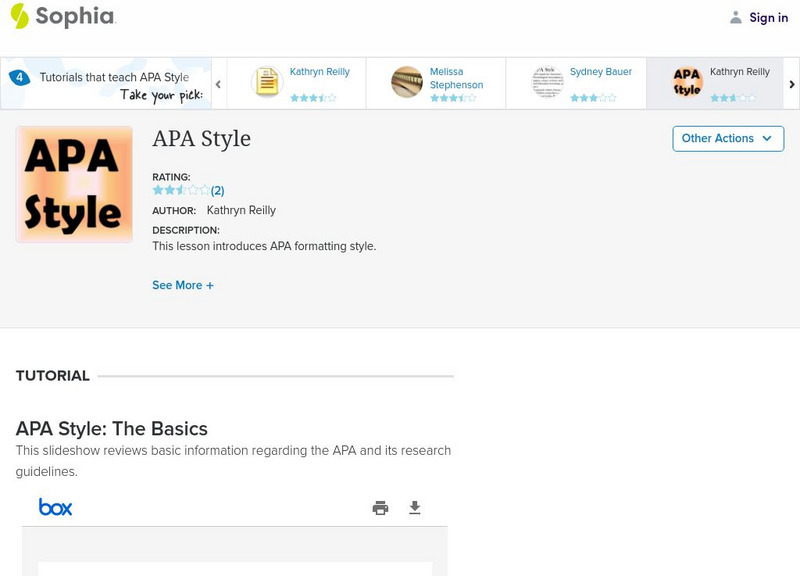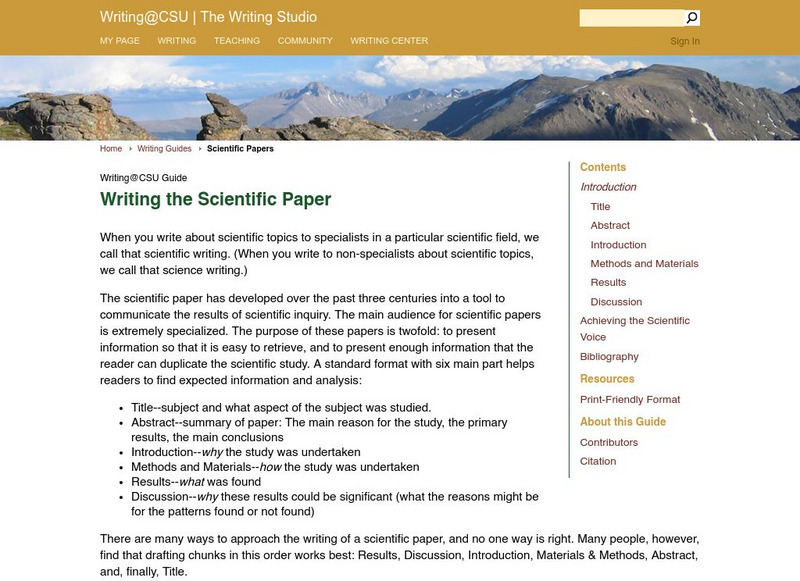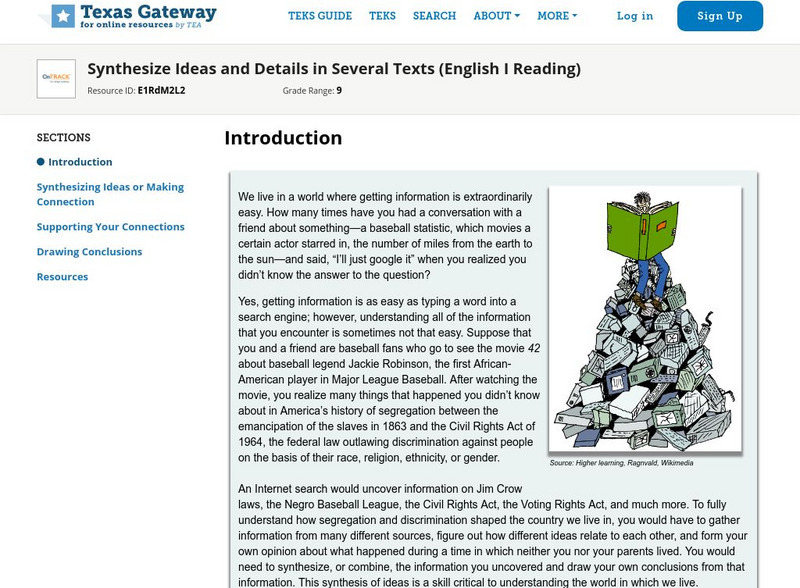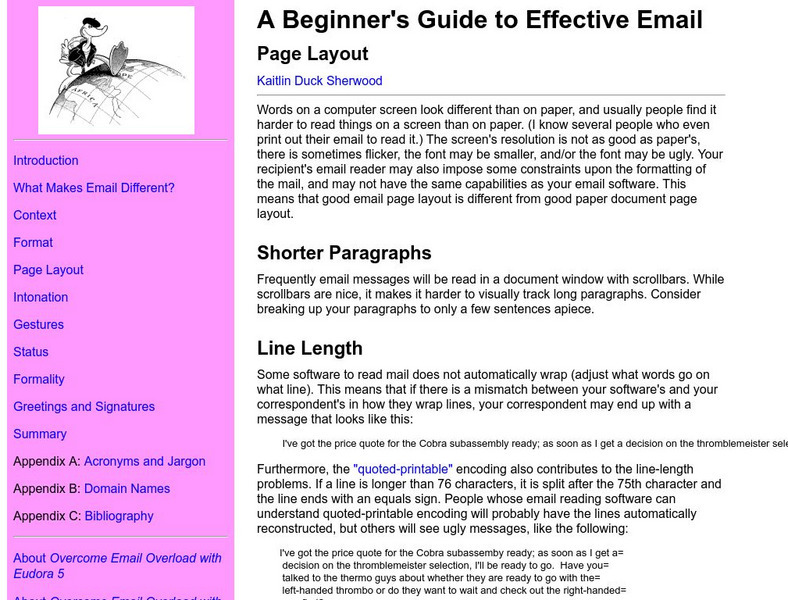International Reading Association
Reading Online: Content Area Literacy Lessons Go High Tech
Research and ideas about the use of technology to aid in reaching content area literacy goals.
US Geological Survey
Usgs: Guidelines for Writing Hydrologic Reports [Pdf]
A very informative site, which is provided for by the U.S. Geological Survey, on how to write hydrologicic reports.
Other
Be Succinct! Writing for the Web
This article gives helpful information on how to write effectively for the web. Gives information on short texts, scannability, and hypertext structure.
TES Global
Tes: Obtaining and Presenting Evidence Glossary
[Free Registration/Login Required] This reproducible glossary contains 27 terms associated with scientific investigation that are suitable for intermediate elementary and middle grade students.
Utah Education Network
Uen: Lesson Plan: Text Structures in Science Writing
Lesson for teaching students to identify components of scientific texts and to use similar structures in their own scientific writing.
Other
Stc: The Society for Technical Communication
This site is dedicated to The Society for Technical Communication. Its membership includes writers, editors, illustrators, printers, publishers, educators, students, engineers, and scientists. You'll find resource materials, databases,...
Read Works
Read Works: Developing Possible Solutions
[Free Registration/Login Required] An informational text about solving problems. A question sheet is available to help students build skills in reading comprehension.
Read Works
Read Works: Great Lakes
[Free Registration/Login Required] Students read about environmental issues causing problems for the Great Lakes. A question sheet is available to help students build skills in drawing conclusions.
Sophia Learning
Sophia: Apa Style
Five slides introducing APA style of formatting and discussing some of the guidelines it establishes for research papers.
Colorado State University
Colorado State Writing Center: Writing the Scientific Paper
A guide to the world of writing in the scientific field. Includes information about scientific-format papers, abstracts, hypotheses and results, and provides several examples.
Other
Designing a Readable User Manual
An article with information and strategies for technical document writing. More article under "Resources".
Grammarly
Grammarly Handbook: Mechanics
An explanation of the importance of mechanics and links to additional information on specific focus areas.
Texas Education Agency
Texas Gateway: Synthesize Ideas and Details in Several Texts (English I Reading)
Synthesize ideas and details in texts and support the connections with textual evidence.
Online Writing Lab at Purdue University
Purdue University Owl: Writing in Engineering: Handbook on Report Formats
The first page in a series of handouts addressing how to organize various report formats. Developed for engineers but useful across disciplines.
University of Toronto (Canada)
University of Toronto: Engineering Communication Program: Memos
This site shows exactly how to write a memo. The site talks about the components to use: header, purpose, summary, discussion, action.
Other
Study.com: Using Precise Language & Vocabulary in Informative Texts
This lesson focuses on using precise language in informative texts. It defines precise text and discusses how to use precise language. W.9-10.2d lang/voc, W.11-12.2d Lang/Fig/Voc
University of North Carolina
University of North Carolina: The Writing Center: Scientific Reports
A handout exploring how to complete a scientific report based on scientific research. The site describes the sections needed as well as how to insert graphs and tables.
Texas Education Agency
Texas Gateway: Synthesize Ideas in Informational/expository Text
[Accessible by TX Educators. Free Registration/Login Required] In this lesson, you will expand on your ability to read texts, synthesize them, and make choices based on the information you read. Finally, you will learn how to use textual...
Other
Friends University: Patterns of Organization and Their Clue Words [Pdf]
Chart lists patterns of organization with their corresponding clue words.
CPALMS
Cpalms: Stand Tall: Using Evidence to Support Your Answers
This learning module has a series of screencast videos and practice exercises designed to teach students how to support their answers with details from the text.
Other
Webfoot.com: A Beginner's Guide to Effective Email Page Layout
This website focuses on page layout and more specifically the length of paragraphs and lines as found in emails.
English Club
English Club: Abbreviations
This EnglishClub tutorial for abbreviations for the four main types of abbreviations and the ways to punctuate each.
Science Education Resource Center at Carleton College
Serc: Why Should You Be Scientifically Literate?
In this activity, students read, discuss, and analyze an article about the importance of scientific literacy, and develop an appreciation of the role science plays in their own lives.
EL Education
El Education: Sapling Rise a Micro Field Guide
Students create a field guide for a three foot by three foot plot of ground. Students name their plots, graph temperature, create an inventory and table to record observations, make illustrations, and write informational text based on...


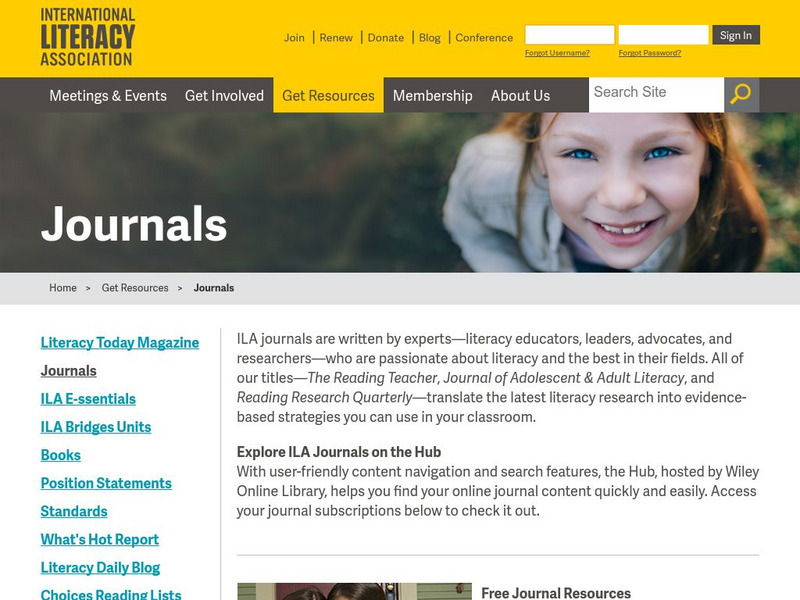
![Usgs: Guidelines for Writing Hydrologic Reports [Pdf] Handout Usgs: Guidelines for Writing Hydrologic Reports [Pdf] Handout](https://d15y2dacu3jp90.cloudfront.net/images/attachment_defaults/resource/large/FPO-knovation.png)

